Connecting To Culture At Uluru




Experiencing the cultural significance of Uluru is a profound and enriching journey that allows you to connect with one of the world’s oldest living cultures. The Anangu people, the traditional custodians of Uluru, have a deep spiritual connection to the land, reflected in their stories, rituals, and way of life. Here are some ways to immerse yourself in the cultural significance of Uluru:
1. Visit the Uluru-Kata Tjuta Cultural Centre
The Cultural Centre is an excellent starting point for understanding the Anangu culture and the significance of Uluru. Here, you can:
- Learn about Tjukurpa: Tjukurpa (pronounced ‘chu-ka-pa’) is the foundation of Anangu culture, encompassing their creation stories, laws, and moral systems. The Cultural Centre offers exhibits and information about these ancient stories and their relevance to the landscape.

- Watch Cultural Demonstrations: The Centre often hosts demonstrations of traditional crafts, such as dot painting and wood carving, providing insight into Anangu artistic traditions.
2. Join a Guided Tour
Guided tours led by Anangu guides and national park rangers offer a unique opportunity to hear stories directly from the traditional custodians and caretakers of the land. Some popular tours include:
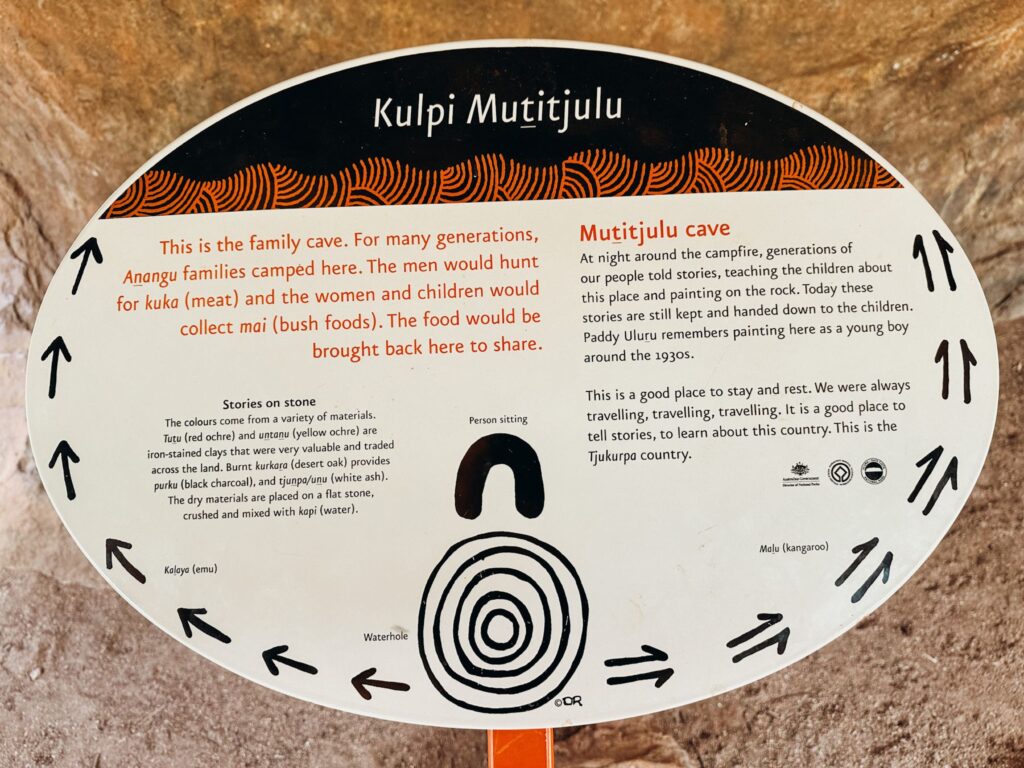
- Mala Walk: This free guided walk around the base of Uluru covers significant sites and shares stories of the Mala people. These ancestral beings played a role in the creating of Uluṟu.
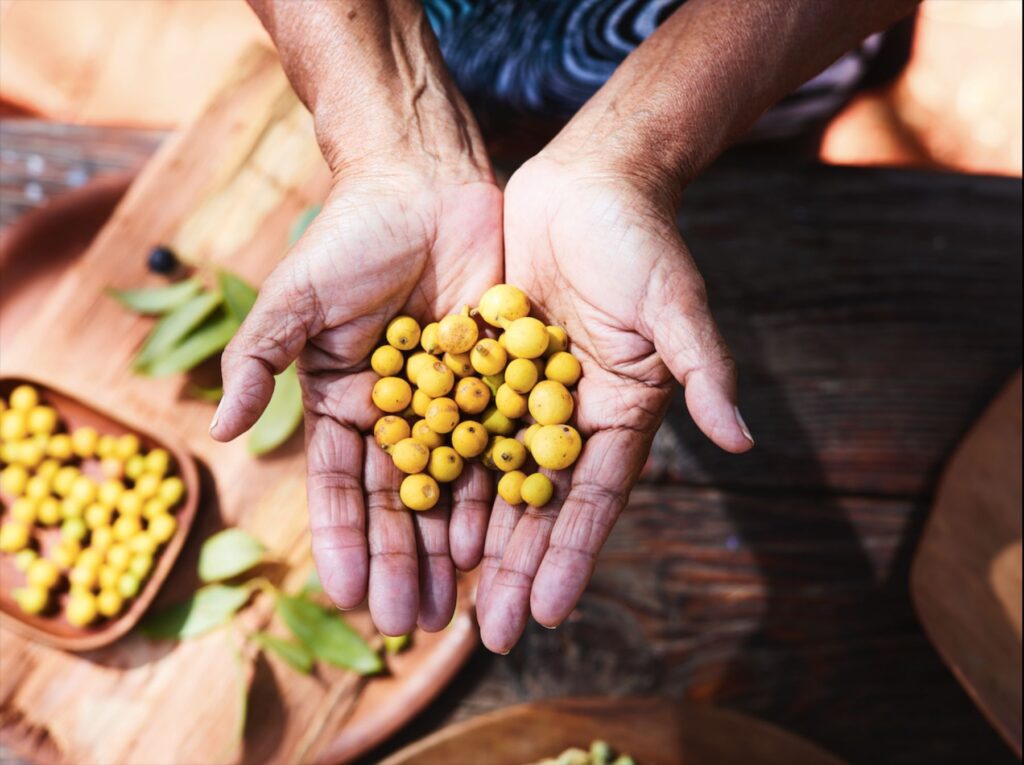
(Credit: Voyages Indigenous Tourism Australia)
- Bush Tucker Tours: Learn about traditional bush foods and medicines the Anangu uses. These tours often include foraging native plants and tasting bush tucker.
3. Participate in Cultural Experiences
Engage in activities that allow you to experience Anangu culture firsthand:
- Dot Painting Workshops: Participate in workshops where you can create your dot painting under the guidance of Anangu artists. These workshops often explain the symbols and stories depicted in the art.
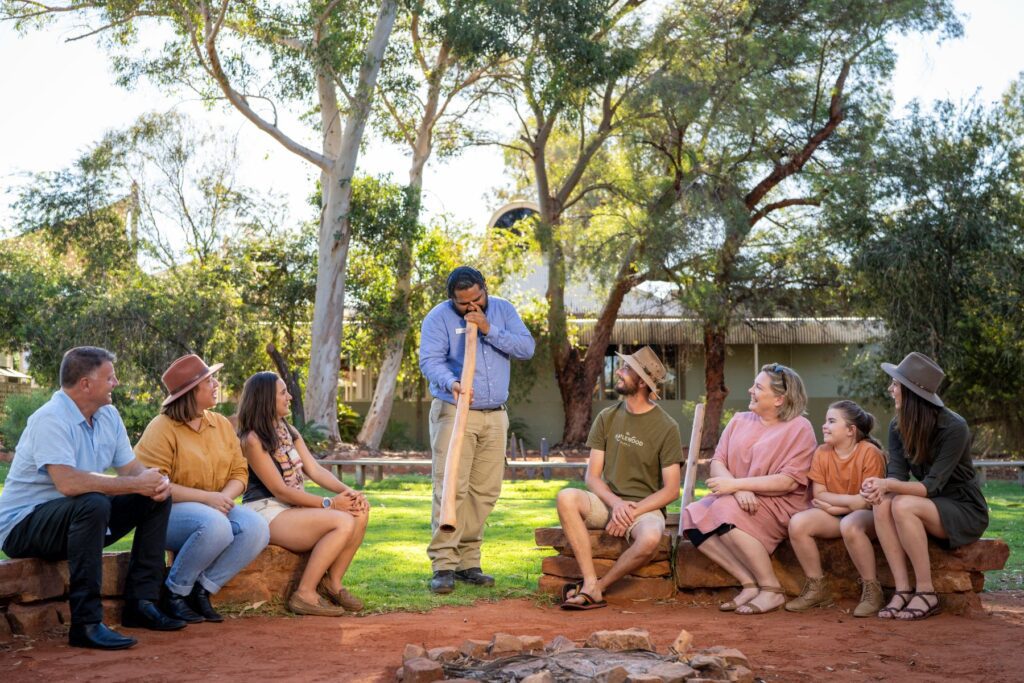
(Credit: Voyages Indigenous Tourism Australia)
- Didgeridoo Workshops: For the men, learn how to play a didgeridoo with an Indigenous guide. The ladies can also participate and learn to play the clap sticks.
4. Respect Sacred Sites
While exploring Uluru, it’s essential to respect the cultural protocols and sacred sites:

- Do Not Climb Uluru: Climbing Uluru officially closed in October 2019 and is prohibited out of respect for its cultural significance. Instead, explore the base and learn about its spiritual importance through guided walks and interpretive signs.
- Respect Sensitive Sites: Some areas around Uluṟu and Kata-Tjuta are important sensitive areas. The rock details and features at these sites describe culturally important information and must only be viewed in their original location. Respect these areas and follow the no filming, photography or painting guidelines provided by the park authorities.
5. Attend Cultural Events
If your visit coincides with cultural events or festivals, take the opportunity to participate:

- Inma (Ceremonial Dance: Witness traditional dances and songs that are an integral part of Anangu culture. These performances often occur during special events and provide a deeper understanding of the spiritual connection to the land.
6. Explore the Landscape
Walking the land is a powerful way to connect with the cultural significance of Uluru:
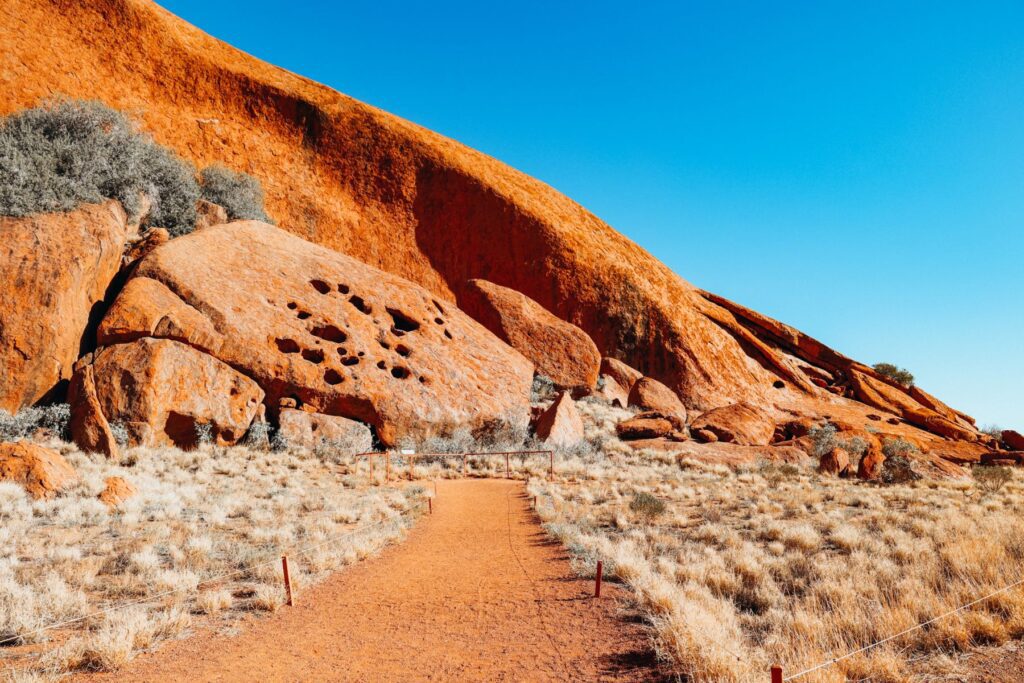
- Base Walk: The 10.6 km walk around the base of Uluru offers a close-up view of the rock’s features and the chance to see ancient rock art and sacred waterholes. Or choose to explore one or more of its sections depending on how much time you have, your level of fitness and the weather conditions.

- Kata Tjuta: Visit the nearby Kata Tjuta rock formations, which also hold significant cultural and spiritual importance for the Anangu people. There are a number of different walks and viewing areas to take in this incredible environment.
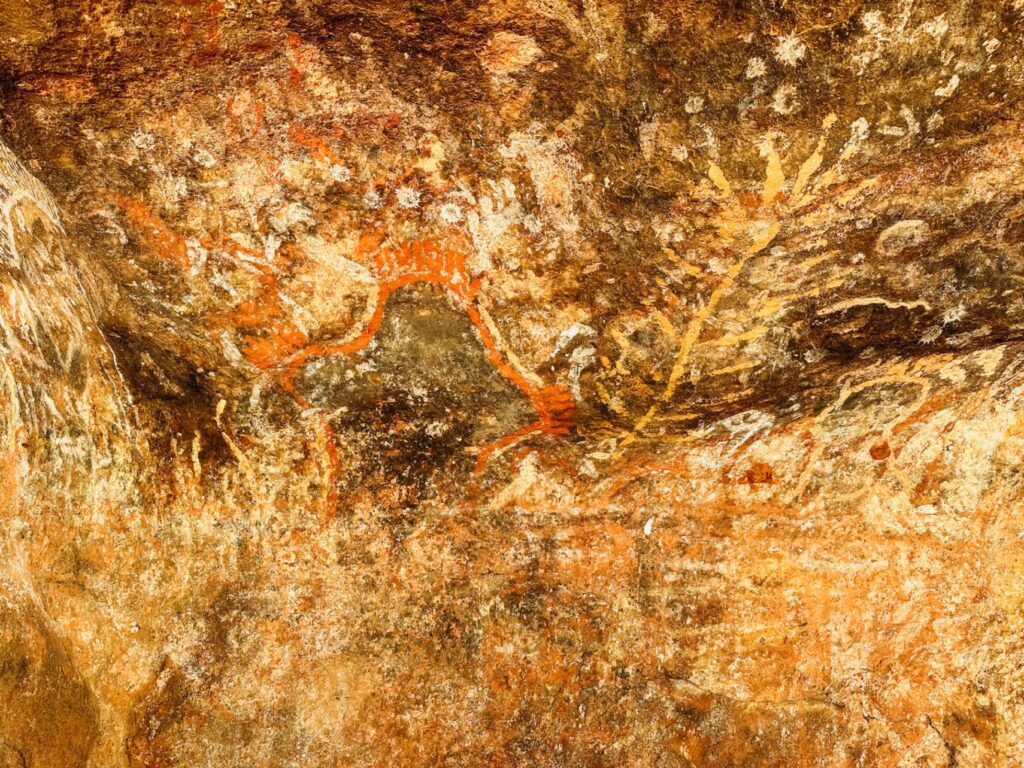
By engaging in these activities, you can gain a deeper appreciation for the cultural significance of Uluru and the rich heritage of the Anangu people. Approach your visit with respect, an open mind and an open heart, and honour the traditions and stories passed down through generations.





